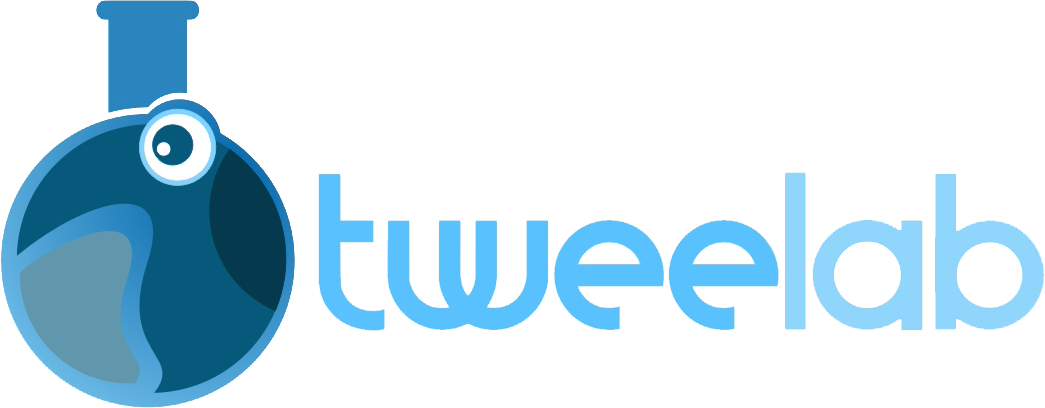As businesses increasingly rely on digital channels to connect with customers, it’s imperative that they choose a secure blog hosting provider. Blogging is an essential part of content marketing and can help boost visibility online. However, with cybercriminals becoming more sophisticated in their attacks, securing your website should be a top priority.
Choosing the right blog hosting provider for your business can seem daunting at first, but it doesn’t have to be. In this article, we’ll explore some key considerations when selecting a host and offer tips to ensure you’re partnering with a provider that prioritizes security.
From data encryption to malware protection, we’ll cover all the bases so you can focus on creating great content without worrying about cyber threats.
Understanding The Importance Of Secure Blog Hosting

As a security analyst, it is crucial to understand the importance of secure blog hosting for businesses. The benefits of secure hosting cannot be overstated. A good provider will offer measures such as SSL encryption and regular backups to ensure that your website remains safe from attacks.
On the other hand, the risks of insecure hosting can be catastrophic for your business. Hackers often target websites with weak security protocols, stealing sensitive information or injecting malware into the site’s code. This not only puts your customers at risk but also damages your reputation and credibility as a business owner.
Therefore, choosing a reliable and trustworthy web host is paramount in safeguarding your online presence. It is essential to conduct thorough research before settling on a particular provider to ensure they have robust security measures in place.
Remember that compromising on security could lead to irreparable damage; don’t take any chances when it comes to protecting yourself and your customers online.
Assessing Your Business’s Specific Hosting Needs

As a security analyst, it’s important to assess your business’s specific hosting needs before choosing a secure blog hosting provider. One key factor is assessing scalability options. Your website may experience growth in traffic and content over time, so you need a host that can accommodate these changes without compromising site performance or security.
Another aspect to consider is identifying traffic patterns. Understanding how much traffic your website receives and when will help determine the level of resources needed from a hosting provider. For example, if your site experiences high levels of traffic during certain times of day or year, you’ll want a host with enough capacity to handle those spikes without downtime or slow page load times.
With these factors in mind, it’s crucial to find a hosting provider that offers flexibility and customization options tailored to your business’s unique needs. Look for providers that offer scalable plans and provide guidance on optimizing server configurations based on your website’s traffic patterns.
By carefully assessing your requirements and finding the right partner, you can ensure both the security and reliability of your online presence for years to come.
In summary, selecting the right secure blog hosting provider requires taking stock of various considerations such as scalability options and identifying expected traffic patterns. A good way to start is by looking at hosts offering customizable solutions that meet your specific business needs while providing technical support and expertise.
With careful planning and attention to detail, securing an optimal hosting solution for blogs can be achieved effectively while minimizing risks associated with data breaches.
Researching Potential Hosting Providers

I’m looking to identify hosting features that provide the best security protocols for my business.
I’m evaluating the security protocols of each potential hosting provider to make sure they are up to industry standards.
I’m researching the safety measures and encryption protocols each provider offers to ensure my data is secure.
I’m also looking into any additional security protocols each provider offers to ensure I’m making the best choice for my business.
Identifying Hosting Features
As a security analyst, choosing the right blog hosting provider can be daunting. With so many options available in the market, it’s important to identify key features that will ensure your business website is secure and reliable.
One of the first things you should look for when researching potential hosting providers are uptime guarantees. This means ensuring that your website is accessible 24/7 without any downtime or interruptions.
Scalability options are also crucial when selecting a blog hosting provider for your business. As your website grows and traffic increases, you want to make sure that your hosting provider can accommodate those changes without compromising on performance or security. A good host should offer scalability options such as upgrading server resources like RAM, CPU cores, storage space, among others.
In conclusion, identifying key features such as uptime guarantees and scalability options are critical when researching potential blog hosting providers for your business. By doing so, you’ll ensure that your website remains stable and secure while accommodating growth over time. Remember to carefully evaluate each option before making a decision to find one that meets all of your needs.
Evaluating Security Protocols
Now that we have discussed the importance of uptime guarantees and scalability options in selecting a blog hosting provider, let’s move on to evaluating security protocols.
As a security analyst, it is crucial to ensure that your website is secure from potential threats such as cyberattacks or data breaches. One way to do this is by conducting regular security audits and vulnerability scanning.
Security audits involve reviewing all aspects of your website’s security protocols including access controls, firewalls, encryption, among others. This helps identify any weaknesses or gaps in your current system that could potentially be exploited by attackers.
Vulnerability scanning involves using automated tools to scan for known vulnerabilities and weaknesses in your website’s software or infrastructure. This allows you to take proactive measures in addressing these issues before they are exploited.
When researching potential hosting providers, make sure to inquire about their security protocols and if they conduct regular security audits and vulnerability scanning. Additionally, look for hosts that offer additional security features such as SSL certificates for encrypted communication between servers and clients, DDoS protection against attacks targeting your server bandwidth, among others.
By evaluating a host’s security protocols and ensuring adequate measures are in place, you can rest assured that your business website remains protected from potential threats while providing reliable services to customers. Remember, never compromise on the security of your website when selecting a hosting provider.
Evaluating Security Features And Protocols

As a security analyst, evaluating the security features and protocols of potential blog hosting providers is essential in ensuring your business stays secure.
Implementing firewalls can help protect against unauthorized access to your site by filtering incoming traffic based on predetermined rules. This serves as an initial line of defense for your website’s data and information.
Vulnerability scans are another important feature that should be considered when selecting a blog hosting provider. These scans work by identifying any vulnerabilities within your system that could potentially be exploited by hackers or other malicious actors. By regularly scanning for vulnerabilities, you can proactively address any issues before they become major threats.
Enforcing password policies such as length requirements and complexity standards, along with implementing two-factor authentication, provides added protection against cyberattacks. Passwords have long been one of the weakest links in online security, but through strong password policies and additional security measures like two-factor authentication, businesses can significantly reduce their risk of being hacked.
Overall, choosing a secure blog hosting provider requires careful consideration of various factors including security features and protocols. It is important to prioritize preventative measures such as firewalls and vulnerability scans while also enforcing strict password policies and utilizing two-factor authentication options. Doing so will provide peace of mind knowing that your business’s sensitive data is well-protected from cybersecurity threats.
Ensuring Data Encryption And Backup Options

Like a fortress protecting valuable treasures, your blog hosting provider must prioritize data security. Ensuring that your website’s content and traffic remain confidential is crucial.
One way to achieve this level of protection is through data encryption. Encryption converts plain text into scrambled code, making it difficult for unauthorized individuals to access sensitive information.
When selecting a secure blog hosting provider, you should look for one with robust disaster recovery protocols in place. These protocols ensure that your site can be restored quickly if there is an unexpected outage or natural disaster.
Data privacy compliance is also essential when choosing a host. An excellent web host will comply with regulations such as the General Data Protection Regulation (GDPR) and other relevant laws related to handling personal data.
In addition to these measures, backing up critical files regularly is another important step towards securing your blog’s data. Your hosting provider should have several backup options available, including automatic backups and manual backups accessible via control panel.
By taking advantage of these backup options regularly, you’ll have peace of mind knowing that even in case of any adverse scenarios like hacking attempts or accidental deletions; your precious data remains safe and recoverable at all times without going offline!
Protecting Against Malware And Cyber Attacks

I’m sure you want to make sure your blog is secure, so firewall protection is key.
Make sure your hosting provider is using firewalls to keep malicious actors out!
Software updates are essential too: make sure your provider is keeping their software up-to-date to prevent vulnerabilities.
Secure networking is also important; make sure your provider is using secure protocols and encryption to protect your data.
All of these factors are crucial for keeping your blog secure, so choose a hosting provider who takes security seriously.
You don’t want to be the victim of a cyber attack, so make sure your hosting provider is doing their part to protect you.
Firewall Protection
Picture yourself walking into a fortress with multiple layers of protection. That is what firewall configuration does for your blog hosting service. It acts as the first line of defense against malware and cyber attacks by monitoring incoming traffic to your website, filtering out any suspicious or unauthorized data packets that may carry malicious code.
Firewall protection can help prevent hackers from gaining access to sensitive information such as customer data, login credentials, payment details, and other confidential business information. As a security analyst, I recommend looking for a blog hosting provider that offers comprehensive firewall protection services.
A good provider should have a well-configured firewall system that provides network segmentation, which means dividing the network into smaller segments, each with its own set of security policies and controls. This helps contain any potential threats within specific parts of the network rather than allowing them to spread throughout the entire infrastructure. Network segmentation also makes it easier to identify and isolate compromised systems in case of an attack.
In conclusion, when choosing a secure blog hosting provider for your business, make sure their firewall configuration includes features like intrusion detection/prevention systems (IDS/IPS), web application firewalls (WAFs), virtual private networks (VPNs) and advanced threat intelligence capabilities. These features provide additional layers of protection against various types of cyberattacks such as distributed denial-of-service (DDoS) attacks, SQL injection attacks, cross-site scripting (XSS) attacks among others.
With these measures in place you can be confident that your business is protected from external threats while providing uninterrupted service to customers who rely on your online presence.
Software Updates
As a security analyst, it is my duty to ensure that your blog hosting service is protected against malware and cyber attacks. In addition to firewall configuration, another important aspect of protection is timely software updates.
The benefits of updating software cannot be overstated. It ensures that your system has the latest patches and bug fixes, preventing hackers from exploiting vulnerabilities in outdated versions. Timely updates also improve overall system performance and stability while providing new features for users.
On the other hand, using outdated software poses significant risks to your business. Hackers can easily exploit known vulnerabilities in old software versions and gain access to sensitive information or disrupt services.
Therefore, as part of our security measures, we strongly recommend keeping all software up-to-date to minimize these risks.
Secure Networking
As a security analyst, ensuring the safety and protection of your blog hosting service is our top priority. In addition to timely software updates and firewall configuration, securing your network through proper access control measures and encryption is equally crucial.
Network encryption involves encoding information transmitted between devices on your network to prevent unauthorized access by cybercriminals. With this in place, even if hackers intercept data transmission, they won’t be able to decipher the information without the encryption key. It’s essential to implement strong encryptions like AES-256 when transmitting sensitive data over public networks.
Access control measures restrict user permissions based on their roles or responsibilities within an organization. This ensures that users only have access to necessary resources while preventing them from accessing confidential files or applications outside their jurisdiction. Access controls can include biometric identification, password management tools, and two-factor authentication methods for added security.
By incorporating these secure networking practices into our overall cybersecurity strategy, we can keep your blog hosting service safe from malware and other cyber attacks.
Our team will continue monitoring potential threats and vulnerabilities, updating protocols as needed to maintain optimal levels of protection against malicious actors seeking ways into your system.
Comparing Pricing And Customer Support Options

When it comes to choosing a secure blog hosting provider, comparing pricing and customer support options is just one aspect of the decision-making process. However, it’s an important one that can make all the difference in ensuring your website remains up-and-running smoothly.
One factor to consider when comparing pricing options is uptime guarantees. A hosting provider with a higher uptime guarantee will ensure that your website is accessible more often than not. This means less downtime for your business and ultimately leads to better user experiences for your visitors.
Another consideration to keep in mind is server location options. The closer your web host’s servers are located to your target audience, the faster they’ll be able to access your site. Not only does this improve loading times but also helps with search engine optimization (SEO) since many algorithms favor quick load speeds.
In summary, as you compare different blog hosting providers, take into account their pricing and customer support offerings while examining uptime guarantees and server location options. These factors play crucial roles in determining which provider offers the best value for money while keeping security at its core.
Key Takeaways
- Choosing a secure blog hosting provider is crucial to protect your website from cyber threats.
- Secure hosting offers benefits like SSL encryption and regular backups to safeguard your website.
- Insecure hosting can lead to data breaches and damage your business’s reputation.
- Assess your business’s specific hosting needs, including scalability options and traffic patterns.
- Research potential hosting providers for their security protocols, uptime guarantees, and scalability options.
- Evaluate security features such as firewalls, vulnerability scans, and password policies.
- Ensure data encryption, backup options, and disaster recovery protocols are in place.
- Protect against malware and cyber attacks by using firewalls, keeping software updated, and securing the network.
- Compare pricing, uptime guarantees, and customer support options when selecting a hosting provider.
- Regularly update your blog software for optimal security.
- Consider offsite storage and backup frequency offered by the hosting provider.
- Be cautious when using third-party security plugins on your blog hosted by the provider.
Useful Table
| Key Considerations | Tips for Choosing a Secure Blog Hosting Provider |
|---|---|
| Data Encryption | Look for providers offering SSL encryption. |
| Backup Options | Ensure regular backups and offsite storage. |
| Security Features | Evaluate firewalls, vulnerability scans, and password policies. |
| Scalability | Choose a provider that can accommodate growth in traffic and content. |
| Uptime Guarantees | Look for providers with high uptime guarantees. |
| Customer Support | Consider the quality and responsiveness of customer support. |
Frequently Asked Questions
How Often Should I Update My Blog Software To Ensure Security?
Regular updates are crucial to maintaining the security of your blog software. Neglecting updates can leave you vulnerable to various risks such as hacking, malware infections, and data breaches.
As a security analyst, I highly recommend that you update your blog software regularly to ensure optimal protection against potential threats. The benefits of regular updates include improved performance, bug fixes, new features, and most importantly enhanced security measures.
So make sure to stay on top of your blog’s software updates to keep it secure and running smoothly.
What Types Of Backups Does The Hosting Provider Offer?
As a security analyst, it’s crucial to understand the backup options offered by hosting providers.
When evaluating a hosting provider for your business blog, it’s essential to consider offsite storage and backup frequency.
Offsite storage ensures that backups are stored in an external location to protect against natural disasters or other unforeseen events.
Backup frequency is also important because more frequent backups mean less data loss if something goes wrong with your site.
Always make sure to ask about these options when choosing a provider to ensure your blog’s security and availability.
Can I Use Third-Party Security Plugins On My Blog Hosted By The Provider?
As a security analyst, it’s important to weigh the benefits and drawbacks of using third-party security plugins on your blog hosted by a provider.
While these plugins can offer additional layers of protection for your site, they also come with potential risks such as compatibility issues or even introducing vulnerabilities themselves.
Additionally, relying solely on these plugins may give a false sense of security and neglect other important measures like keeping software up-to-date and implementing strong passwords.
Ultimately, the decision to use third-party security plugins should be made carefully after assessing the specific needs and risks of your website.
How Does The Hosting Provider Handle Ddos Attacks?
As a security analyst, it’s important to consider how hosting providers handle DDoS attacks.
These attacks are becoming increasingly common and can severely impact the availability of your blog.
Look for a provider that offers protection measures such as anti-DDoS solutions and has experience in mitigating these types of attacks.
Additionally, inquire about their anti-hacking solutions and ensure they have protocols in place to prevent unauthorized access to your data.
It’s crucial to choose a provider that takes security seriously and can provide reliable support when needed.
Does The Hosting Provider Offer Ssl Certificates For Secure Browsing?
SSL certificates are an absolute must for any business looking to secure their online presence. The benefits of SSL certificates include encrypted communication, authentication, and data integrity protection.
When choosing a hosting provider, it’s important to compare the pricing offered by different providers as this can vary significantly depending on the level of security required.
As a security analyst, I strongly recommend that businesses opt for hosting providers who offer SSL certificates with their packages in order to ensure maximum security for their customers’ sensitive information.
Final Thoughts
In conclusion, as a security analyst, it is imperative to consider various factors when choosing a blog hosting provider.
Updating your blog software regularly reduces the chances of being hacked and ensures maximum security for your business. Additionally, third-party security plugins can provide an extra layer of protection that should be allowed by the hosting provider.
Furthermore, it’s crucial to choose a hosting provider that offers different types of backups and SSL certificates for secure browsing. With these measures in place, you can rest assured knowing that your data is safe from DDoS attacks or any other forms of cybercrime.
As they say, ‘An ounce of prevention is worth a pound of cure,’ so take proactive steps towards securing your blog today!

